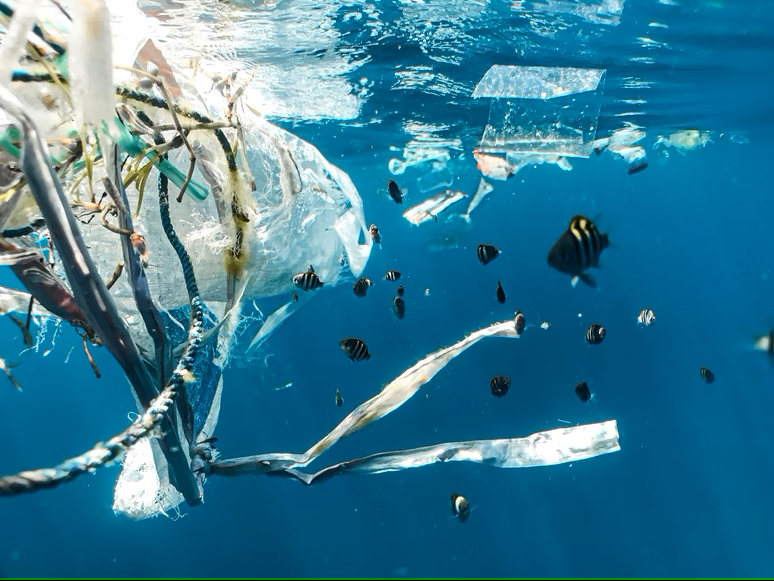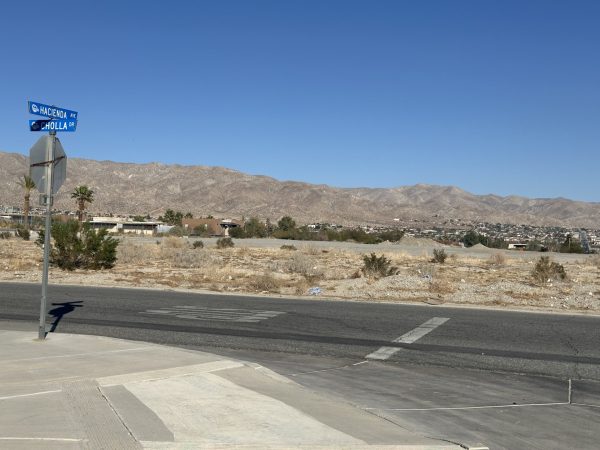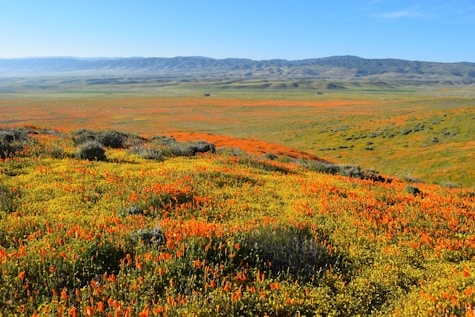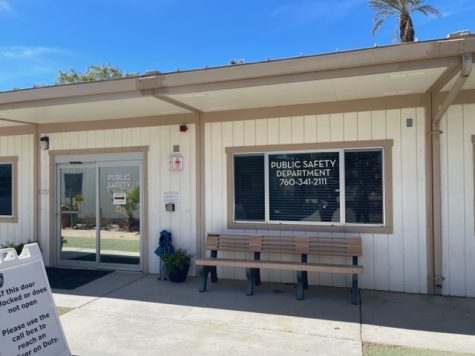The Toxic Tourist: Is your holiday ruining the planet?
Juvenile fish swim amongst plastic and fishing waste in Indonesia
The benefits of Travel have long been touted. Better physical and mental health, broadened perspectives and enhanced cultural awareness are just a few advantages. And according to a study published in The Journal of Tourism Analysis, people who travel are happier with their lives than people who don’t. Some may argue that it is also a necessary education in our global world. Mark Twain said, “Travel is fatal to prejudice, bigotry, and narrow-mindedness, and many of our people need it sorely on these accounts. Broad, wholesome, charitable views of men and things cannot be acquired by vegetating in one little corner of the earth all one’s lifetime.”
For most of us, our worlds grew smaller since lockdowns and quarantines, and this has us yearning for new scenery. However, the pandemic has also brought to light the detrimental effects our wanderlust has on our planet and has many reevaluating their lifestyle. Our planet, our only one, is in jeopardy. Should we put the brakes on tourism?
Before the pandemic, we knew the harmful effects of tourism on our environment. Carbon emissions from air travel have been targeted as one of the most harmful forms of pollution for decades; the Greenhouse Effect has been a topic since the 1970s. Aircraft release carbon pollution directly into the upper atmosphere where, according to the FAA, they do the worst of their damage. A transcontinental long-haul flight leaves a carbon footprint equivalent to one-fourth of an average Western person’s annual carbon emissions.
Unfortunately, the solution isn’t to take a ship. Rampant pollution has long been the cruise industry’s dark secret. Commercial shipping has always been at the center of environmental concerns, but the cruise industry’s contribution may be even more heinous. According to the environmental group Friends of the Earth, one cruise ship generates about 15 gallons of hazardous chemical waste every day, produces up to 210,000 gallons of sewage and almost five times as much graywater. And this pales in comparison to the air pollution generated by these mega-ships. In 2016, the Pacific Standard reported that “every passenger’s carbon footprint while cruising is roughly three times what it would be on land.” Sightseeing excursions, all-you-can-eat buffets, and even the evening’s entertainment consume our resources faster than we can sustain.
By the summer of 2020, with the pandemic in full swing, the tourism industry was shuttered. Cruise ships were docked, planes grounded, and millions worldwide who depend on tourism to survive were left jobless. Humanity was struggling, but something else was happening to the planet. As lockdowns were implemented in one place after another, billions of people stopped commuting to work, reducing air pollution. They didn’t stop for the cup of coffee with the plastic lid or order lunch in the to-go container. They didn’t take that weekend, week-long, or two-week vacation getaway. With reduced emissions, production, and waste, nature began to regenerate in one place after another. The skies cleared in some of the most smog-filled cities worldwide as air and ground travel plummeted. With much of the world sheltering in place during the coronavirus pandemic, scientists have noticed a pronounced drop in air pollution. A report from the Associated Press provides details: “Smog stopped choking New Delhi, one of the most polluted cities globally, and India’s getting views of sights not visible in decades. Nitrogen dioxide pollution in the northeastern United States is down 30%. Rome air pollution levels from mid-March to mid-April were down 49% from a year ago. Stars seem more visible at night.”
Dolphins were filmed sporting in the new clear water of Venice’s canals. This resurgence has been primarily due to the reduction of pollution from motorized watercraft, including the over 600 cruise vessels that normally clogged Venice’s harbor. Unfortunately, the city itself continues to pollute its lagoon with its outdated 16th-century sewage system that releases wastewater directly into its canals and is no longer adequate for managing the sewage demands of Venice today.
Covid continues to march across the globe, but tourism is already making a comeback. What can the industry do to clean up its act? The cruise industry has had much idle time to develop a strategy to limit harmful emissions. On Jan. 1, 2020, a new International Maritime Organization (IMO) regulation requiring ships to switch from heavy fuel to more expensive low-sulfur alternatives was adopted, and cruise lines have heavily invested in optimizing their ships to reduce carbon emissions. Ships powered by natural gas, electricity, and methanol are already in operation.
Airlines for America, the trade organization representing the major national airlines, announced that its members have committed to achieving net-zero carbon emissions by 2050. Using jet fuel produced from sustainable sources such as plant oils, municipal waste, and agricultural residue will generate almost 80 percent fewer carbon emissions than fossil fuel-based jet fuel. This commitment includes the goal of making two billion gallons of sustainable aviation fuel available to U.S. carriers by 2030.
As public demand for more sustainable options grows, hotels, tour companies and travel suppliers across the industry are implementing sustainability practices. Resorts. Hotels and vacation properties have implemented programs for recyclable and renewable methods. Some tour operators will calculate your carbon footprint and help you offset it. The industry publication Travel Pulse has a list of suppliers and destinations that concentrate on sustainable practices here, and the Sustainability Leaders Project lists their top picks here.
What can you do to help? Some may give up traveling entirely, and others may make more informed choices about their Travel. Gregory Miller, executive director at the Center for Responsible Travel, asserts that “tourism absolutely helps contribute to a sustainable local economy.” Millions of family incomes depend on tourism.
Look for ways to make your trip more sustainable, not just the mode of transportation but where you will go in the first place. Is it an over-touristed destination? There is no shortage of new places to discover. Pick a destination that needs your money. Or even better, one that you can contribute to by engaging in volunteer work while you are there. The website www.volunteerhq.org can lead you to a destination that needs your help.
What you do on the ground is equally as important. Do things that make sure your money ends up in the community; shop mom and pop stores, hire a local guide, or buy handicrafts and souvenirs from the artisans who make them. Ferries, trains and public buses are the most environmentally friendly modes of transport once you arrive at your destination. If you stay in a hotel, resort, or vacation property, check out the corporation behind it and make sure they practice sustainability standards. Conde Nast Traveler’s handy guide to eco-friendly Travel offers suggestions on how to clean up your trip at www.cntraveler.com/story/eco-friendly-travel-guide.
Lowering your everyday carbon emissions at home is a way of offsetting any extra carbon emissions incurred through traveling. Assess your lifestyle; can you drive less or take public transportation? Can you make changes in your home to increase energy efficiency? Food waste and meat consumption are significant emitters of CO2, and conscientious consumption can cut our carbon footprint immensely. Take a look at how you can cut down on your carbon footprint with this online calculator.
Ecotourism is not just a buzzword; it should be your buzzword. Wikipedia defines it this way: “Ecotourism is a form of tourism involving responsible travel (using sustainable transport) to natural areas, conserving the environment, and improving the well-being of the local people.” This means your vacation can bring benefits for both the environment and the economies of your destinations.
As a species, we humans want to travel, and this exposure to new places and perspectives benefits us. But Travel increases our carbon output immensely. We are obligated, as humans, to take responsibility for the destruction we have done to our home and try to reverse the damage. Before your next trip, educate yourself about destinations that will benefit from your stay. Research the airline, hotel, or travel company you used to make sure they make environmental changes to their operations. Limit your daily carbon footprint to help offset your travels. Your mindfulness will increase your engagement and enjoyment of your destination.
Samantha Bray, Managing Director of the Center for Responsible Travel (CREST), sums it up nicely; “One of the biggest misconceptions is that traveling responsibly somehow puts a damper on your trip or is difficult. I would argue that the opposite is true. Traveling responsibly does not mean giving something up. It means appreciating the site you are visiting and acting in a way that ensures it is taken care of for the community that lives there and future generations.”












